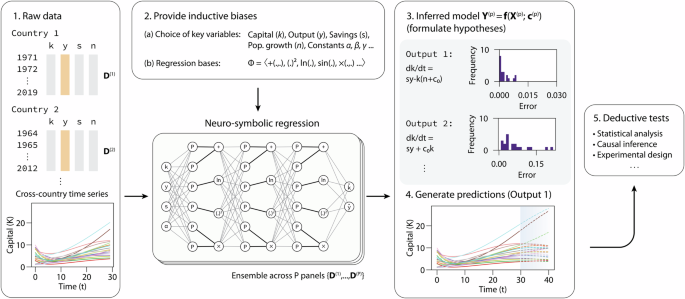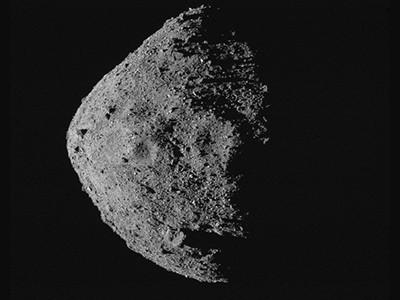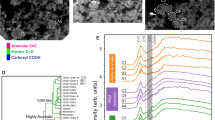-
AI-assisted discovery of quantitative and formal models in social science

Abstract In social science, formal and quantitative models, ranging from ones that describe economic growth to collective action, are used to formulate mechanistic explanations of the observed phenomena, provide predictions, and uncover new research questions. Here, we demonstrate the use of a machine learning system to aid the discovery of symbolic models that capture non-linear…
-
Adventure Together: Fall in love with nature and science in February while making family memories

Tegu lizard at Forgotten Friend Reptile Sanctuary. Photo courtesy of Forgotten Friend Reptile Sanctuary. I’ve heard it said that, if February weren’t short, nobody would survive the winter. We go into this month with an expectation of impermanence, time here and gone quicker than ice floating down the Susquehanna. One way to preserve moments this…
-
Art and science overlap for nature illustrators

Every year, the Bartels Science Illustration Program hosts an artist-in-residence who creates art and infographics to accompany scientific publications and for the Cornell Lab’s outreach activities, building their portfolios and connections with people in the scientific community. “It’s been a really nice combination of all the different things I’ve been interested in for so long:…
-
How China created AI model DeepSeek and shocked the world

The DeepSeek-R1 large language model can perform some tasks at a level that rivals models made by OpenAI, the developer of the chatbot ChatGPT.Credit: Nicolas Tucat/AFP via Getty Chinese technology start-up DeepSeek has taken the tech world by storm with the release of two large language models (LLMs) that rival the performance of the dominant…
-
‘High anxiety moment’: Biden’s NIH chief talks Trump 2.0 and the future of US science

Monica Bertagnolli, who was appointed head of the National Institutes of Health by President Joe Biden, stepped down shortly before the start of Donald Trump’s second presidential term. Credit: Stephen Voss for Nature “This is clearly a high anxiety moment,” says former US National Institutes of Health (NIH) director Monica Bertagnolli, who finished her term…
-
Asteroid fragments upend theory of how life on Earth bloomed

Fragments of the asteroid Bennu, carefully collected and ferried to Earth by a robotic spacecraft, contain the building blocks for life, NASA announced today. NASA ‘fist bumps’ an asteroid to reveal Solar System’s secrets Not only does Bennu contain all 5 of the nucleobases that form DNA and RNA on Earth and 14 of the…
-
Daily briefing: Chaos erupts in US science as Trump’s team declares freeze on federal grants

Hello Nature readers, would you like to get this Briefing in your inbox free every day? Sign up here. The administration of President Trump set off an uproar 27 January by suspending federal spending on grants and loans.Credit: Joe Raedle/Getty US science in chaos after grant freeze Researchers in the United States are reeling after…
-
Want to get a species protected? Publish in a small, niche journal

The yellow-legged frog (Rana muscosa) is a federally listed species endemic to California.Credit: Irfan Khan/Los Angeles Times via Getty Plants and animals that gain protection by US law owe much more to studies published in small, specialist journals than they do to those published in prestigious titles such as Nature and Science. That’s the finding…
-
Abundant ammonia and nitrogen-rich soluble organic matter in samples from asteroid (101955) Bennu

Abstract Organic matter in meteorites reveals clues about early Solar System chemistry and the origin of molecules important to life, but terrestrial exposure complicates interpretation. Samples returned from the B-type asteroid Bennu by the Origins, Spectral Interpretation, Resource Identification, and Security–Regolith Explorer mission enabled us to study pristine carbonaceous astromaterial without uncontrolled exposure to Earth’s…
-
Scientists flock to DeepSeek: how they’re using the blockbuster AI model

Thank you for visiting nature.com. You are using a browser version with limited support for CSS. To obtain the best experience, we recommend you use a more up to date browser (or turn off compatibility mode in Internet Explorer). In the meantime, to ensure continued support, we are displaying the site without styles and JavaScript.